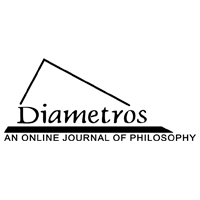The Philosophes’ Criticism of Religion and d’Holbach’s Non-Hedonistic Materialism
The Philosophes’ Criticism of Religion and d’Holbach’s Non-Hedonistic Materialism
Author(s): Hasse HämäläinenSubject(s): Philosophy of Religion
Published by: Instytut Filozofii Uniwersytetu Jagiellońskiego
Keywords: Denis Diderot; Enlightenment; happiness; hedonism; Claude Adrien Helvétius; materialism; Paul-Henri Thiry; Baron d’Holbach; religion;
Summary/Abstract: Baron d’Holbach was a critic of established religion, or a philosophe, in late 18th-century France. His work is often perceived as less inventive than the work of other materialist philosophes, such as Helvétius and Diderot. However, I claim that d’Holbach makes an original, unjustly overlooked move in the criticism of religious moral teaching. According to the materialist philosophes, this teaching claims that true happiness is only possible in the afterlife. As an alternative, Helvétius and Diderot offer theories according to which the experience of pleasure constitutes happiness, the end of all human desire. In contemporary terms, these theories would represent psychological hedonism. But, as Diderot himself admits, they have a problem in accounting for why people seem to naturally regard some pleasures as preferable to others. I argue that in response to this challenge, instead of accepting the psychological hedonism of his fellow materialists, d’Holbach shows how one can abstain from reducing happiness to pleasure and yet remain a materialist.
Journal: Diametros
- Issue Year: 2017
- Issue No: 54
- Page Range: 56-75
- Page Count: 20
- Language: English

